A quick introduction to cryptocurrency
Last updated

Table of Contents
- What is cryptocurrency?
- What gives crypto value?
- How do I create a crypto wallet?
- How to buy and sell crypto?
- How to send crypto?
- How to receive crypto?
- How does a crypto exchange work?
- Crypto debit cards
- What are the tax implications of using crypto?
- What's a self-custodial crypto wallet?
- How does crypto governance work?
- How does crypto trading work?
What is cryptocurrency?
Cryptocurrency (sometimes shortened to crypto) is a new type of digital asset and, just like with all assets, you can store it, exchange it, and in many cases make payments with it. The key to what makes cryptoassets different from national currencies like the US Dollar, stocks or paintings lies in its decentralized structure and opt-in model. What does that mean?
With centralized 'fiat money' (literally money by decree), currency is issued by central banks, and citizens are forced to use the money of their nation. With the exception of cash (which is becoming increasingly rare), transactions are made through intermediaries like banks and payment gateways. Stocks are similarly issued and held by trusted intermediaries, or middle men.
Cryptoassets such as Bitcoin, by contrast, are an opt-in currency that is controlled by the 'consensus' or the will of its users. It consists of a growing network of people who voluntarily agree to the rules of the Bitcoin protocol. They use decentralized infrastructure to make transactions on a peer-to-peer basis and to store value independently of any government, company, or financial institution. There's no need to ask for permission to use Bitcoin, and there's no risk of being cut off from the system.
Importantly, the system itself is headless and distributed globally, making it both resistant to corruption and extremely durable.
Assets such as paintings, cars, and old books do not directly rely on intermediaries, but in practice the authenticity process necessitates a network of experts and intermediaries. These assets are also non-digital making the markets localized (as opposed to global) and highly illiquid. Pre-blockchain digital assets such as digital paintings fail to retain value since perfect copies can be infinitely produced. In-game digital assets have value, but once again you are relying on highly centralized video game companies. Cryptoassets such as NFTs cannot be copied, nor do they rely on any intermediaries.
What gives crypto value?
Cryptoassets have value for three key reasons:
- Thanks to its features, some people find it useful as a way to store and exchange value.
- Because a group of people agree it has value.
- It creates economic value.
Let’s look at three cryptoassets that capture a wide variety of assets cryptoassets come in: Bitcoin, Ethereum, and NFTs.
1. Bitcoin
Bitcoin and other more strictly cryptocurrency-like digital assets such as Bitcoin Cash or Monero, focus on the first two reasons.
Historically, people have used everything from seashells to bottle caps as money, but arguably the most enduring form of money is gold. Why?
People settled on gold thanks to its rarity, its durability, and its divisibility. These features made gold useful as a method for storing and exchanging value.
Bitcoin is often compared to gold because it has similar characteristics. Namely:
- It has a limited supply. There will only ever be 21 million bitcoins.
- It's easily divisible. You can divide one bitcoin into 100 million pieces.
- It's durable. A huge globally distributed network of independently operated computers tracks Bitcoin ownership. This ensures that no bitcoin is lost.
Beyond this, Bitcoin has a few other important features which allow it to bring gold's monetary properties to the modern digital era. These are:
- It's easy to send bitcoin. Sending any amount of bitcoin to anyone in the world can be done in minutes and with a 100% guarantee of security. It's almost like sending an encrypted email.
- It's easy to verify the authenticity of bitcoin. Actually, it's effectively impossible to transact with fake bitcoin.
Read more: Understand the most important details of the Bitcoin protocol.
Read more: Bitcoin vs Gold: A Comparative Analysis for the Modern Investor.
Read more Bitcoin vs. Altcoins: A Comparative Analysis for Investors.
2. Ethereum
Many people believe that Ethereum and other smart-contract enabled blockchains have value for the first two reasons, but it is the third reason that distinguishes them from more cryptocurrency-like assets such as Bitcoin.
Ethereum can roughly be explained as a decentralized platform on which other cryptoassets and decentralized applications (DApps) can be built. Ethereum and other smart-contract enabled blockchains facilitate the creation of cash-flow generating businesses. DeFi is the best example of this.
Read more: What is Ethereum?
Read more: What is a Smart Contract?
Read more: What is DeFi?
3. NFTs
NFTs encompasses a wide variety of different asset types. This ranges from art such as paintings and photographs, to music and video game assets. NFTs represent financial instrument positions like LP tokens, and staking derivatives such as vCRV and stETH.
Due to the diversity of NFTs, their value is really determined by all three of the reasons above. Many NFTs, especially art-based ones, are determined by what people will pay for them. Many of these art-based NFTs act in a similar way to traditional art-based stores of value like paintings or rare collectibles.
Finally, some NFTs can create economic value. Yuga labs, the company behind BAYC is perhaps the most notable. Using BAYCs name recognition and intellectual property, BAYC holders have launched off-shoot products such as a Ape-in Productions (AIP) launched by Timbaland. Universal Music Group launched KINGSHIP, an NFT “supergroup" made up of four BAYC apes in the vein of Gorillaz. There’s also a BAYC drink and book in the works leveraging the BAYC IP.
Read more: What are NFTs?
How do I create a crypto wallet?
A crypto wallet is a tool for interacting with the various cryptoassets such as Bitcoin, Bitcoin Cash, and Ethereum. Use it to buy, sell, send, receive, and trade cryptoassets. Making a crypto wallet is as easy as downloading an app.
Read more: How do I create a crypto wallet?
How to buy and sell crypto?
- Apps like the Bitcoin.com Wallet.
- Websites like the buy/sell page on Bitcoin.com.
- Centralized crypto exchanges. Caution: this option is custodial.
Read more: Understand the pros and cons of custodial vs. self-custodial.
How to send crypto?
Sending bitcoin is as easy as choosing the amount and deciding where it goes.
Read more: Check out our complete guide to safely and securely sending crypto.
How to receive crypto?
Receiving bitcoin is a simple matter of providing the sender with your Bitcoin address.
Read more: Learn how to receive crypto securely.
How does a crypto exchange work?
Crypto exchange is the process of trading cryptoassets for local currencies, goods or services, or other cryptoassets. Your options range from peer-to-peer exchanges to giant centralized exchange services that resemble a stock trading account.
Read more: Learn the ins and outs of crypto trading.
Crypto debit cards
Crypto debit cards are a convenient way to spend your cryptoassets.
Read more: Find out about the different types of crypto debit cards and how they work.
What are the tax implications of using crypto?
Whether you're investing in cryptoassets, getting paid in cryptoassets, or just using cryptoassets to pay for goods and services, you need to be aware of the relevant tax laws in your country. In some regions, you may be exempt from taxation altogether. In others, onerous tax laws require you to track every transaction.
Luckily there's a growing variety of tools that help you comply with the tax laws in your country. We recommend TokenTax, which is a crypto tax software platform and crypto tax calculator that vastly simplifies the process. It helps you connect to exchanges, track your trades, and automatically generate crypto tax reports regardless of your country of residence.
Read more: How is crypto taxed?
What's a self-custodial crypto wallet?
Crypto wallets can be divided into two categories:
- Custodial. This means the wallet provider has access to your cryptoassets.
- Self-custodial. This means the wallet provider doesn't have access to your cryptoassets.
Whether the wallet provider has access to your crypto or not has a number of important implications. We recommend you always keep your digital assets in a self-custodial wallet like the multi-chain Bitcoin.com Wallet app.
Read more: Understand the pros and cons of custodial vs. non-custodial crypto wallets.
How does crypto governance work?
Crypto projects are not static protocols; they can and do evolve over time as needed and in response to its environment. The process for making improvements to cryptoassets includes both formalized procedures and a form of decision making, known as 'rough consensus,' that derives from open-source software development cultures.
Some crypto projects are more centralized than others. For example, Bitcoin is a headless organization. It is 'owned' - if we can use the term - by the sum total of all its users. What Bitcoin is and how it evolves, then, is an open question, the answer to which is ultimately determined by a wide array of voices, from miners and nodes, to exchanges, wallet providers, and - most importantly - the people who hold and use bitcoin.
Whereas Solana is essentially controlled by a constortium of validators and companies. As the network matures they plan to decentralize the control of the network, but for the time being they wish to maximize speed of development.
Read more: Understand Bitcoin's formalized governance process
Read more: How does governance work in Ethereum?
How does crypto trading work?
You can trade cryptocurrencies using decentralized exchanges like Bitcoin.com's Verse DEX. With this method, there is no counter-party risk and you always stay in control of your funds. Furthermore, you don't need to provide your identity. Access Bitcoin.com's decentralized exchange on the web or using the Bitcoin.com Wallet app. Alternatively, trading cryptocurrency is possible using centralized exchanges where you do not retain control of your holders. Big market movers typically operate on centralized exchanges, although trading volume on decentralized exchanges is growing rapidly and will likely soon outpace the centralized crypto space.
Related guides
Start from here →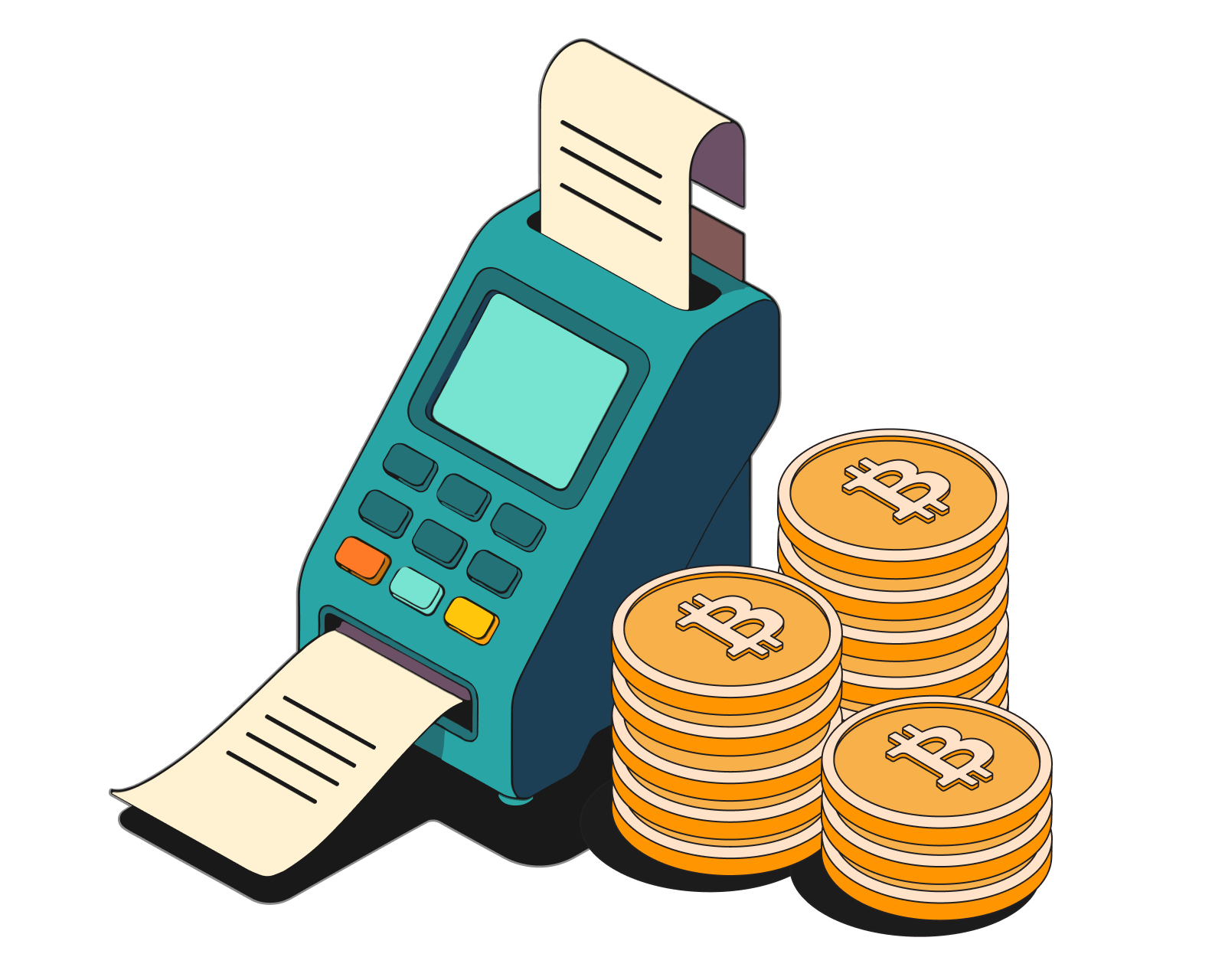
How do I buy crypto?
Learn how to get your first crypto in minutes.

How do I buy crypto?
Learn how to get your first crypto in minutes.
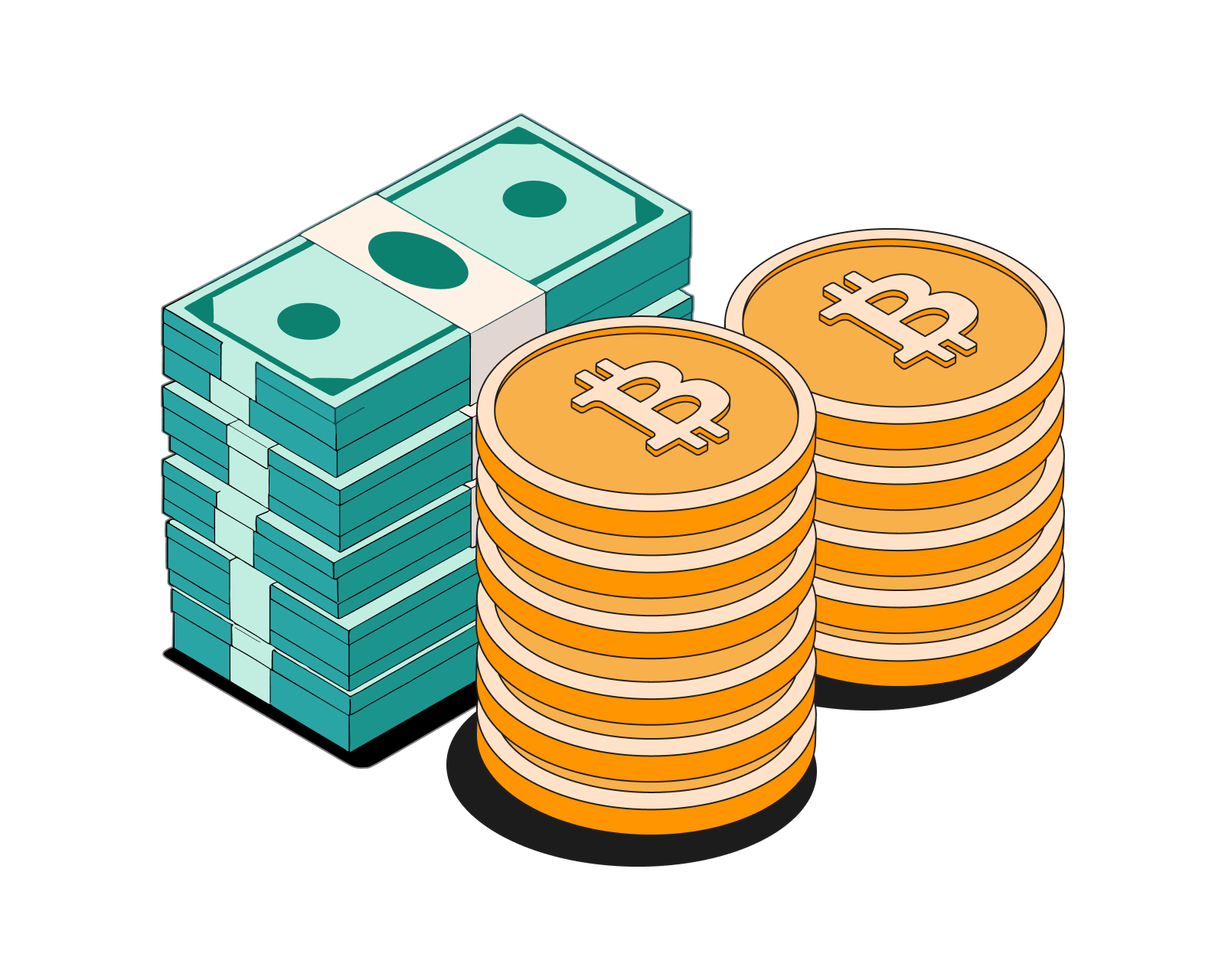
How do I sell crypto?
Learn how to sell crypto into local currency safely.

How do I sell crypto?
Learn how to sell crypto into local currency safely.
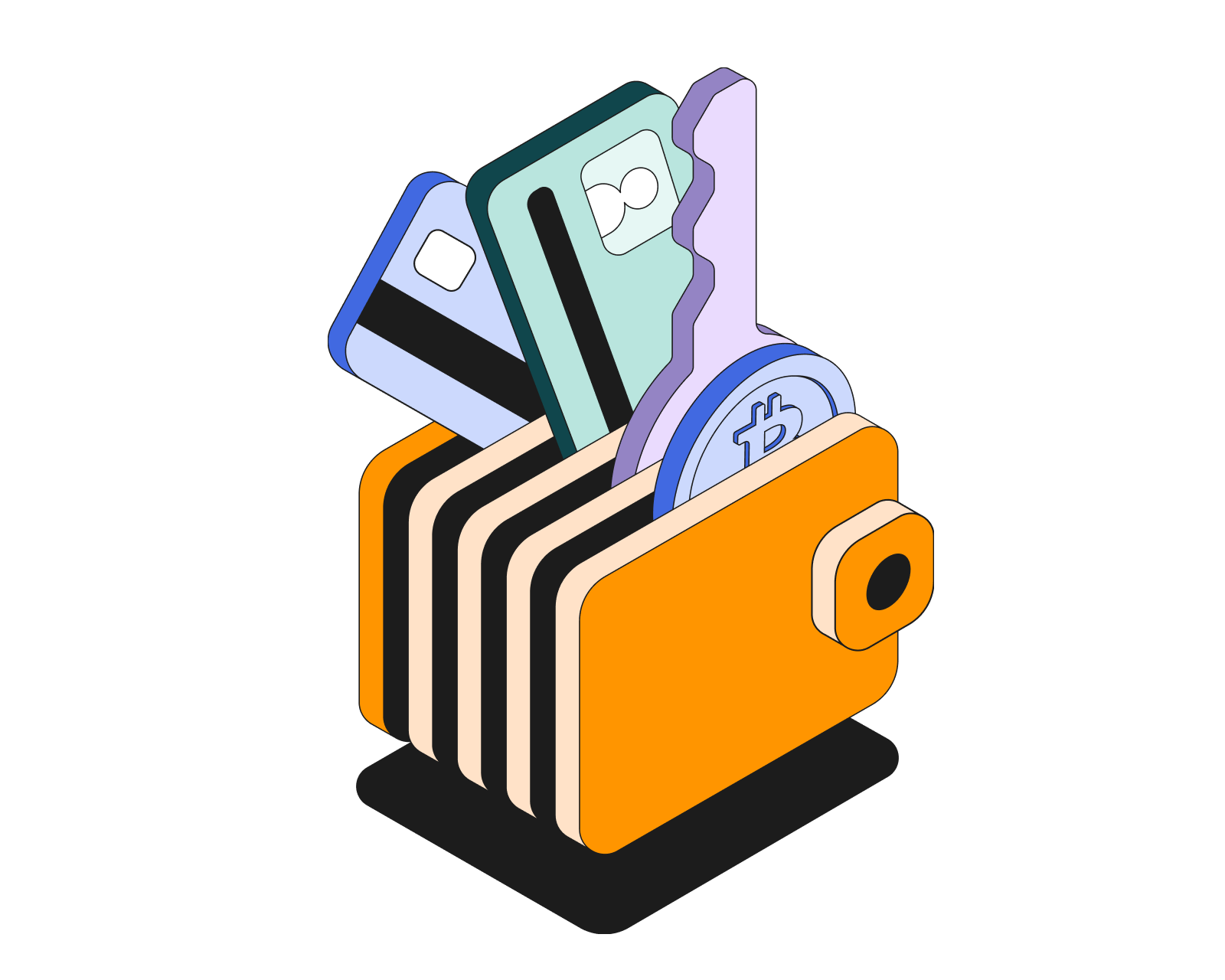
How do I create a crypto wallet?
Learn how to quickly and easily create a crypto wallet. Understand the different wallet types and their respective pros & cons.

How do I create a crypto wallet?
Learn how to quickly and easily create a crypto wallet. Understand the different wallet types and their respective pros & cons.

What is Bitcoin?
Get a straightforward introduction to Bitcoin and why it matters.

What is Bitcoin?
Get a straightforward introduction to Bitcoin and why it matters.
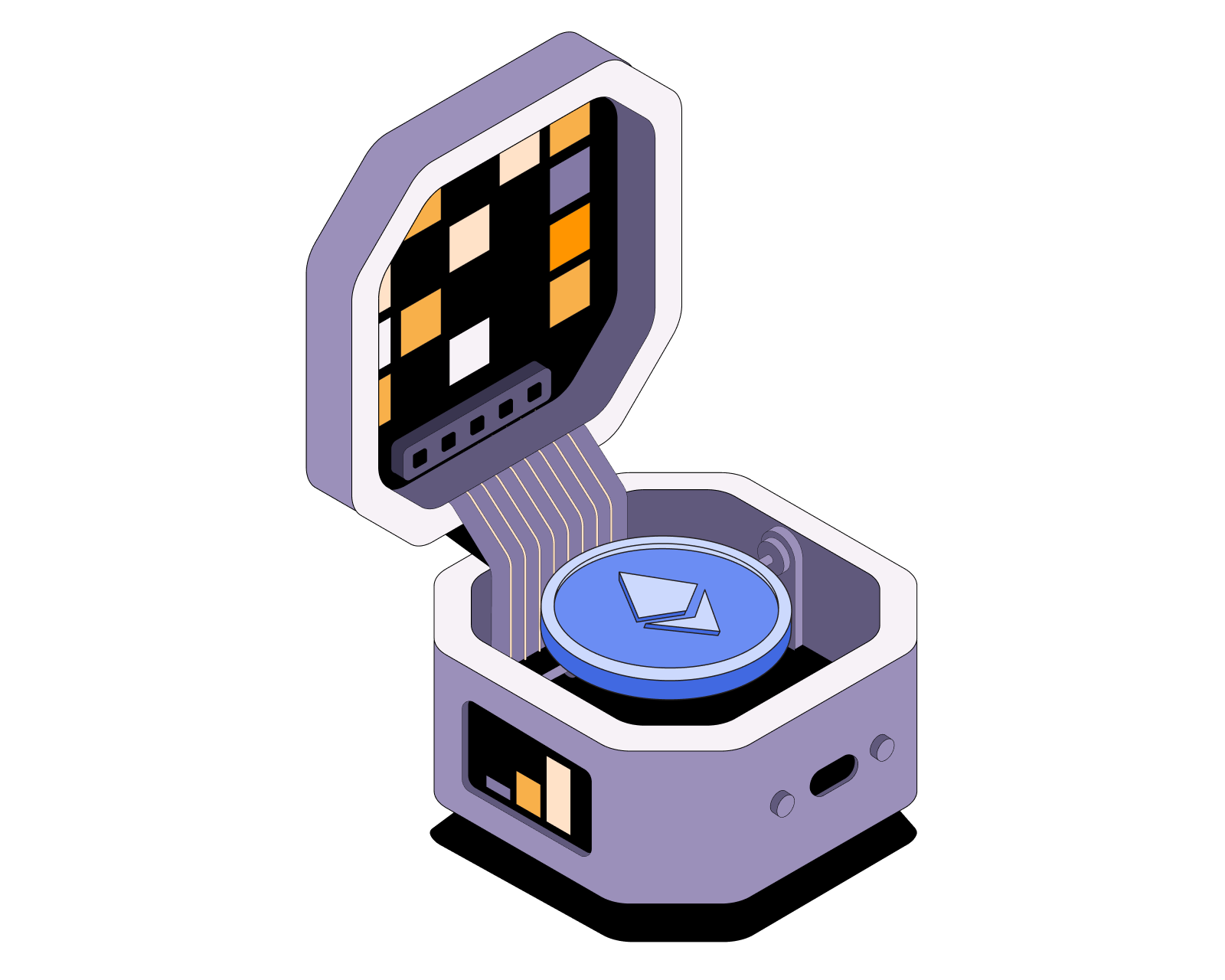
What is Ethereum?
Understand Ethereum's key characteristics.

What is Ethereum?
Understand Ethereum's key characteristics.
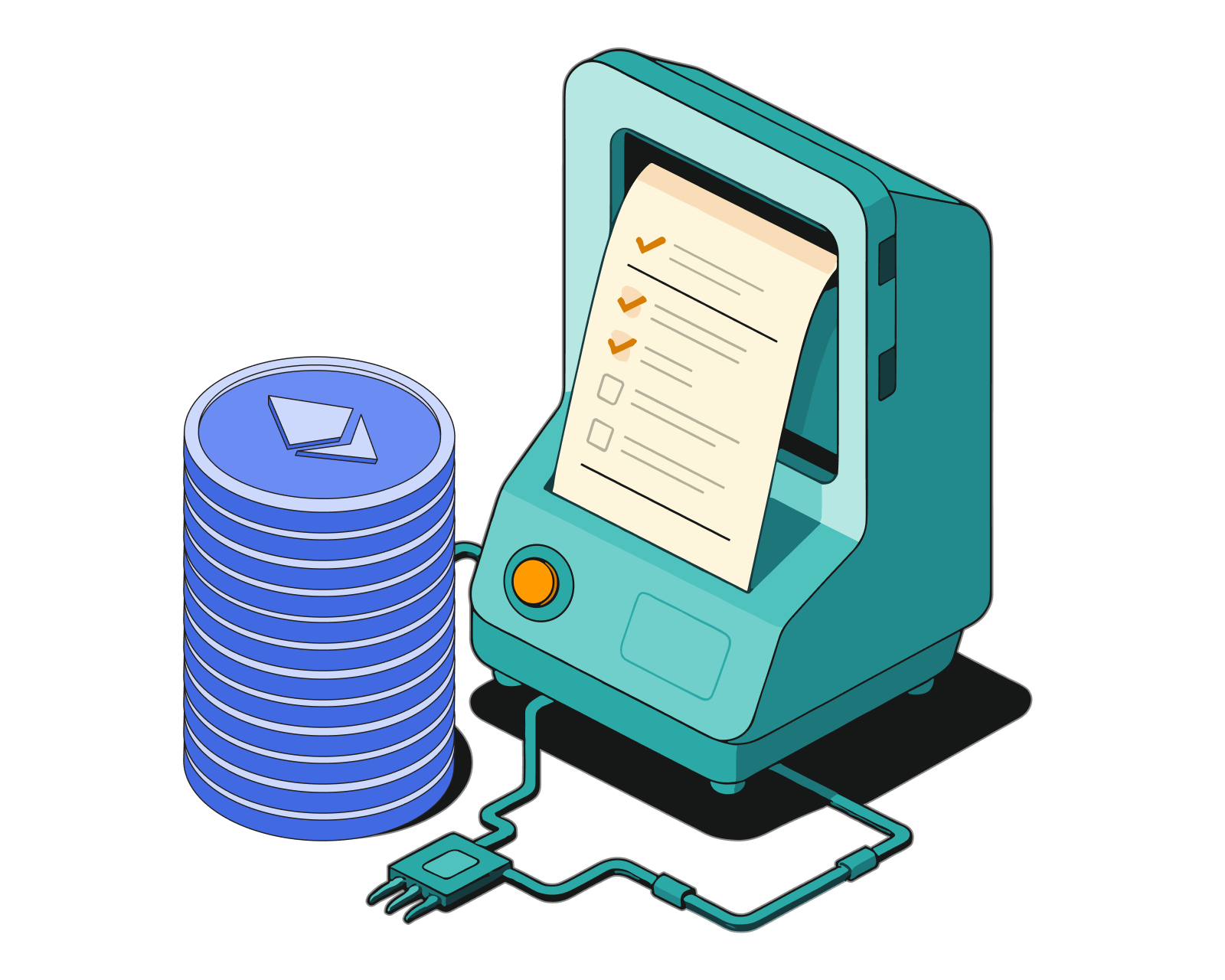
What are ERC-20 tokens?
Learn the basics of the Ethereum token standard, what ERC-20 tokens are used for, and how they work.

What are ERC-20 tokens?
Learn the basics of the Ethereum token standard, what ERC-20 tokens are used for, and how they work.
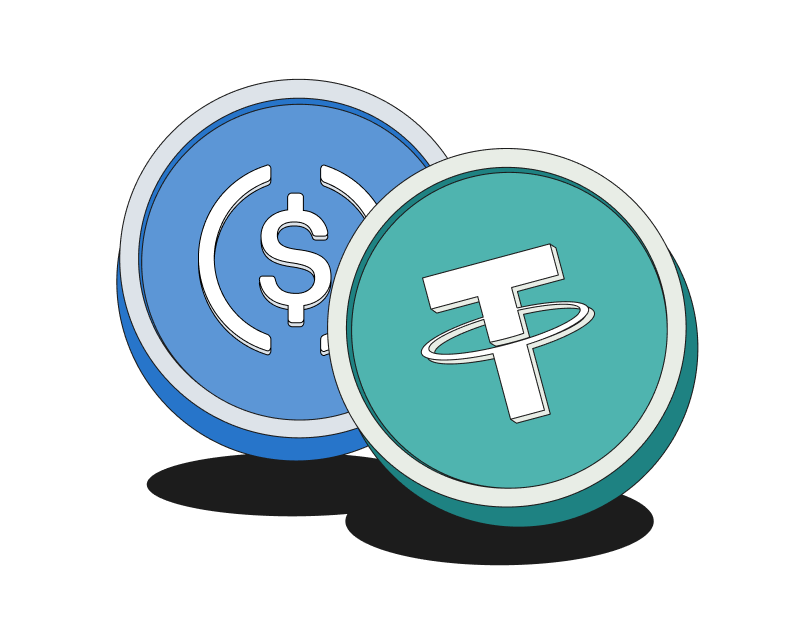
What are stablecoins?
Learn about the key US-dollar crypto 'stablecoins,' how they remain stable, what they're used for, ways to earn interest on them, and where to get them.

What are stablecoins?
Learn about the key US-dollar crypto 'stablecoins,' how they remain stable, what they're used for, ways to earn interest on them, and where to get them.
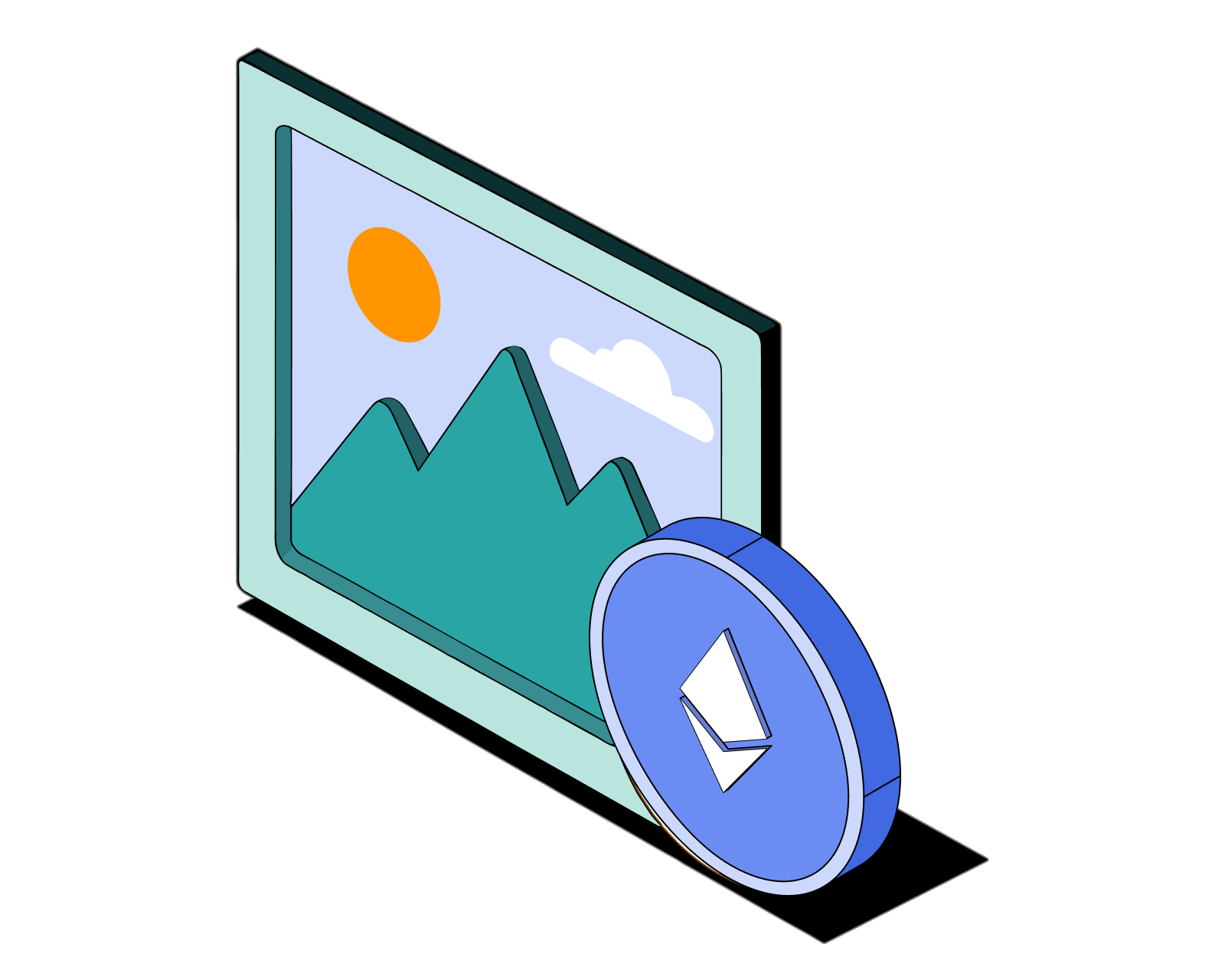
What are NFTs?
Learn about NFTs, how they work, examples of prominent NFTs, and much more.

What are NFTs?
Learn about NFTs, how they work, examples of prominent NFTs, and much more.
STAY AHEAD IN CRYPTO
Stay ahead in crypto with our weekly newsletter delivering the insights that matter most
Weekly crypto news, curated for you
Actionable insights and educational tips
Updates on products fueling economic freedom
No spam. Unsubscribe anytime.
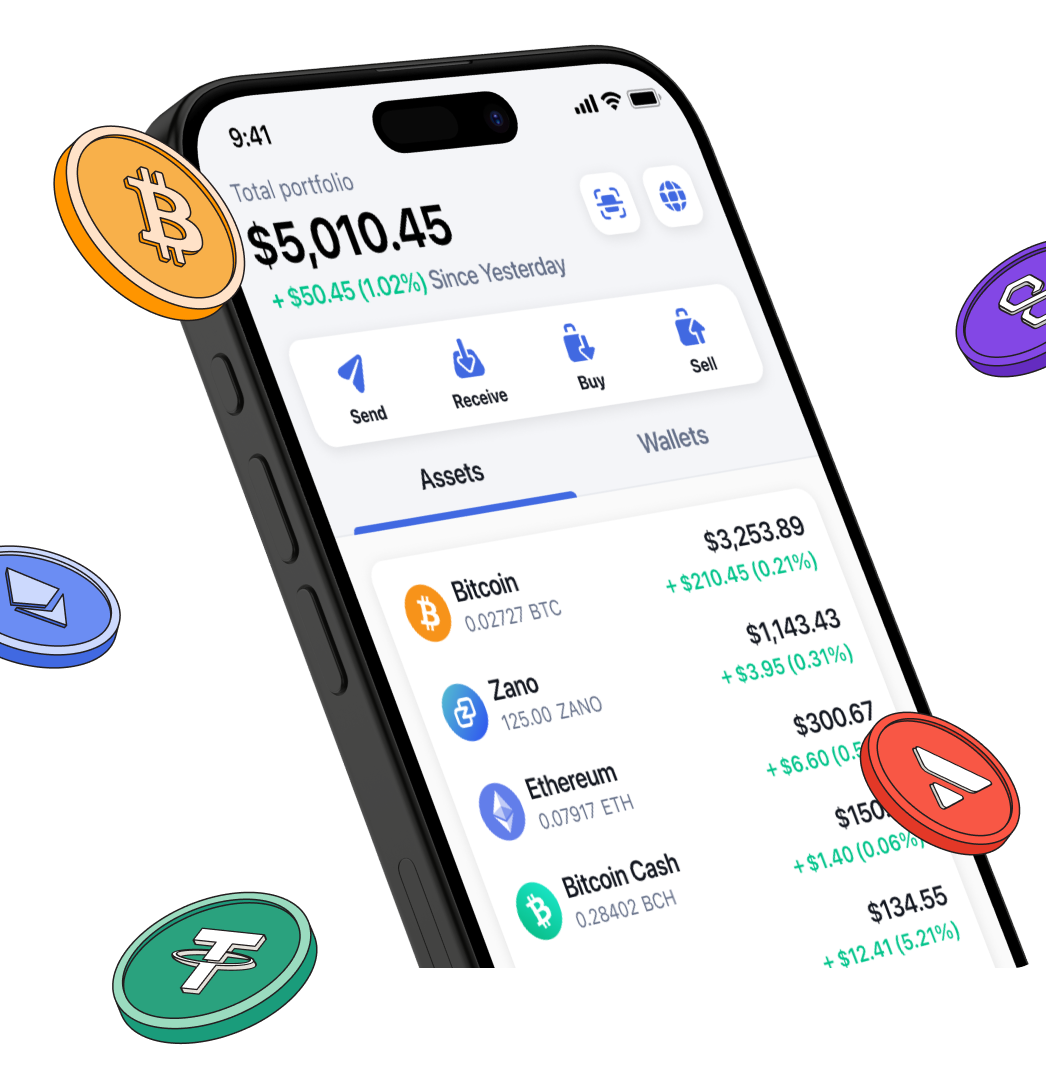
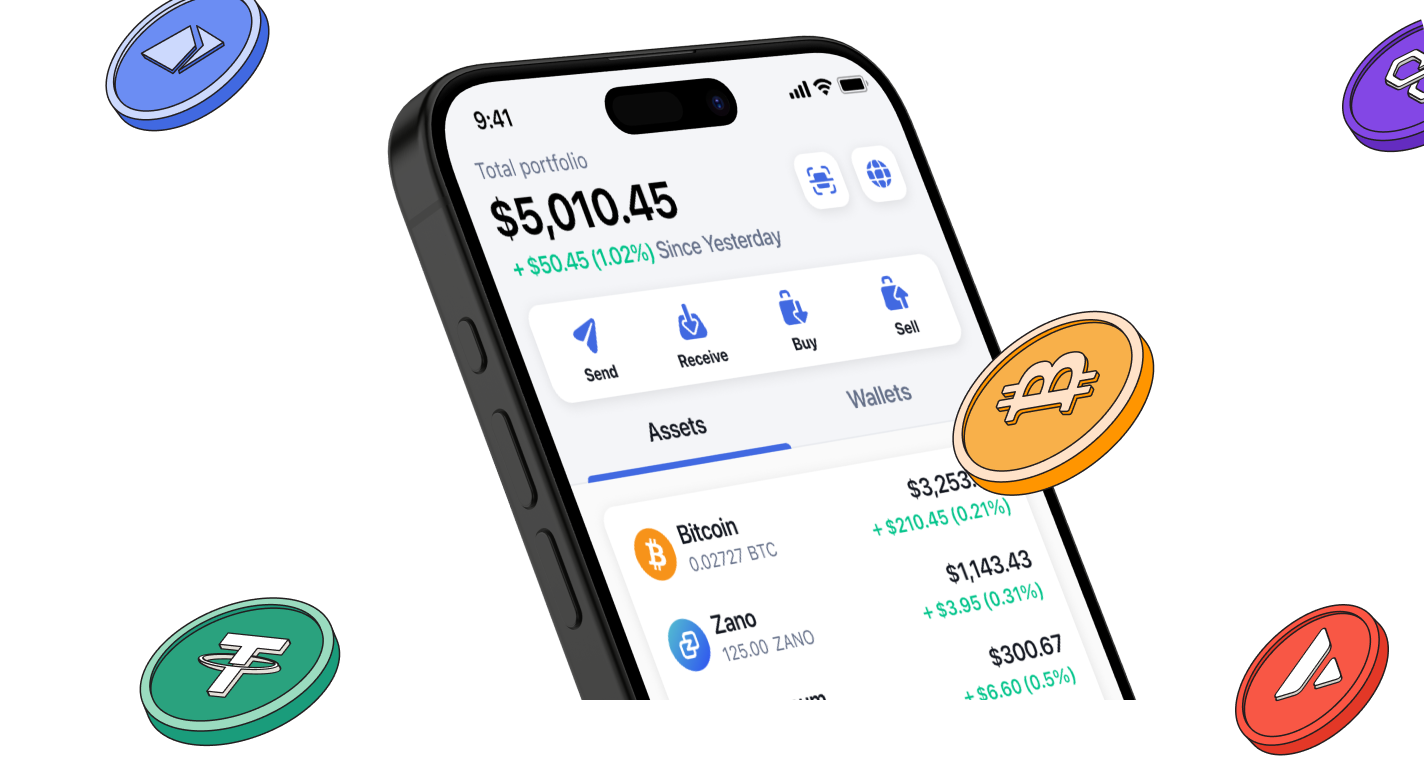
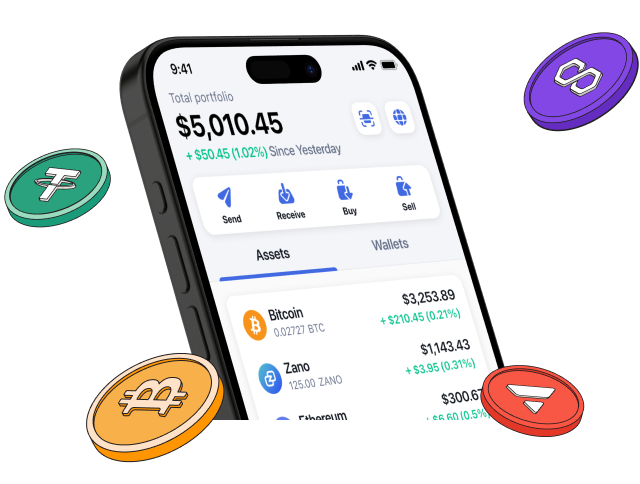
Start investing safely with the Bitcoin.com Wallet
Over wallets created so far
Everything you need to buy, sell, trade, and invest your Bitcoin and cryptocurrency securely

© 2026 Saint Bitts LLC Bitcoin.com. All rights reserved



